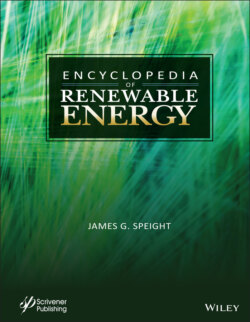Читать книгу Encyclopedia of Renewable Energy - James Speight G., James G. Speight - Страница 191
Biological Alcohol
ОглавлениеA biological alcohol is any alcohol that is provided through the action of a biological agent (such as a microbe, typically the biological agent is a colony of microbes) on a feedstock.
As an example, the fermentation process is a complex biochemical process during which yeast converts sugars to ethanol, carbon dioxide, and other metabolic by-products that contribute to the chemical composition and sensorial properties of the fermented foodstuffs. Control of the fermentation process is generally considered as a prerequisite to determine the quality of the final product. In this context, fermentation monitoring is a growing need, which calls for fast, low-cost, and nondestructive methods providing real-time or online information in order to assure an effective control at all stages of the process.
The production of the biological alcohol is accomplished by yeast, certain types of bacteria, as well as other microorganisms that result in the conversion of sugar derivatives into ethyl alcohol and carbon dioxide. In the process, yeast is mostly used as the biological agent and the yeast generally carries out the aerobic fermentation process, but it may also ferment the raw materials under anaerobic conditions. The process commences with the breakdown of sugars by yeasts to form pyruvate molecules (glycolysis) which, in the case of glucose, produces two molecules of pyruvic acid. The two molecules of pyruvic acid are then reduced to two molecules of ethanol and carbon dioxide.
Under anaerobic conditions, the pyruvate can be transformed to ethanol, where it first converts into an intermediate product (acetaldehyde, CH3CHO) which further releases carbon dioxide and is converted into ethanol (CH3CH2OH).
See also: Bioalcohol, Bioethanol, Fermentation, Fermentation Chemistry.
